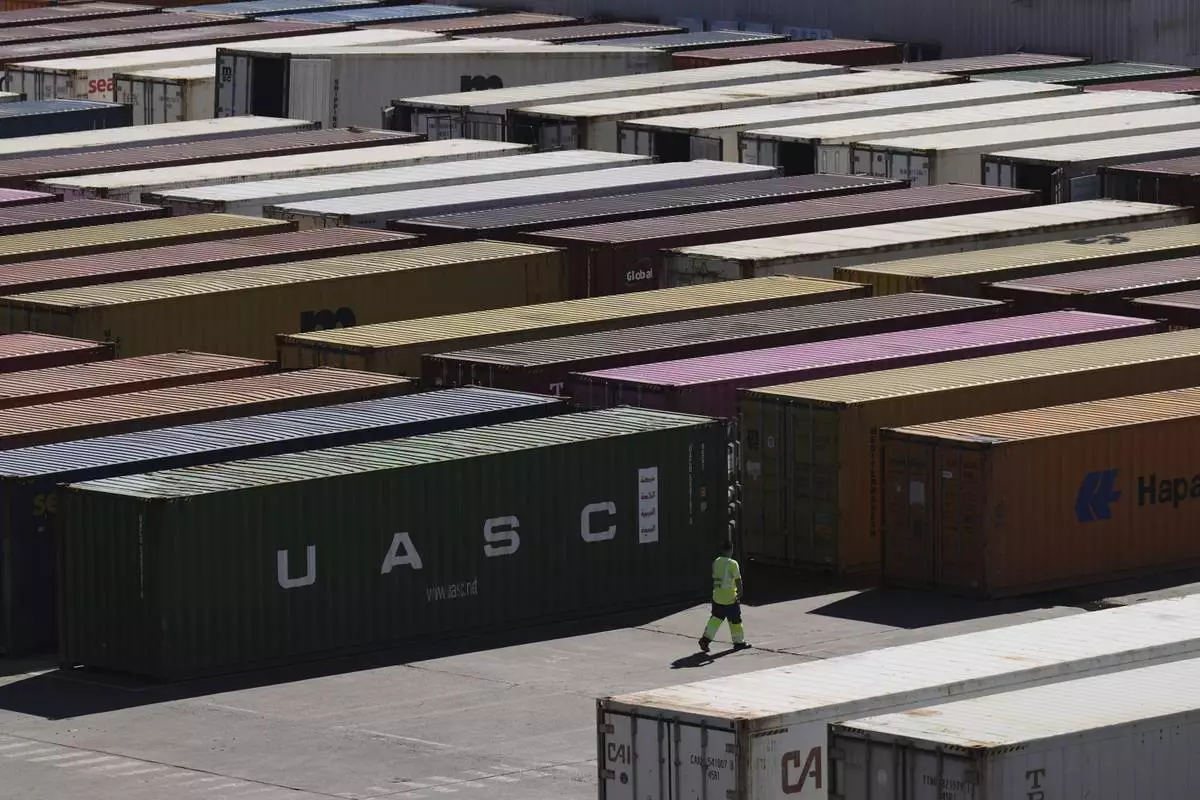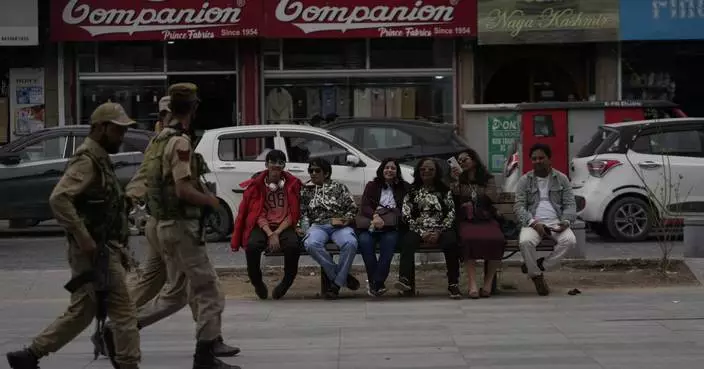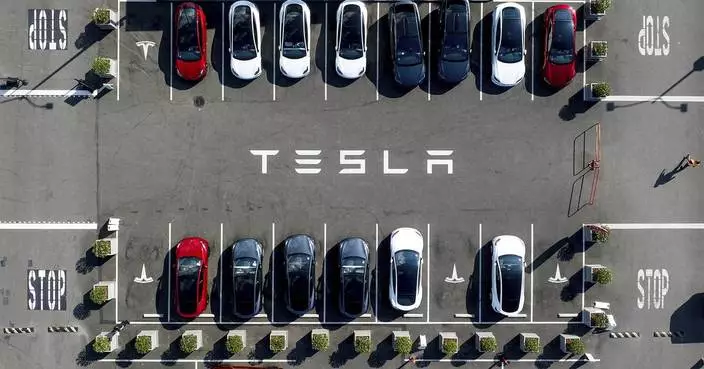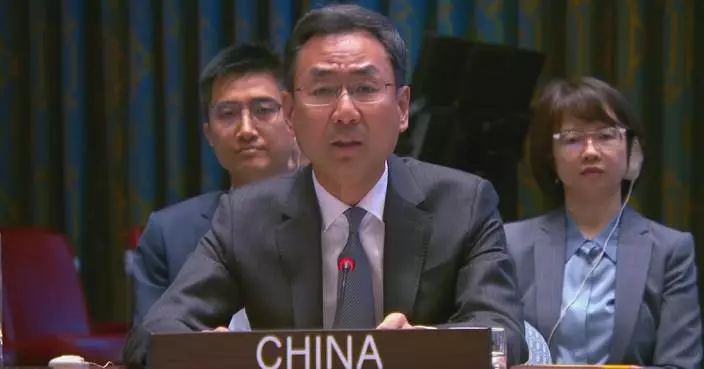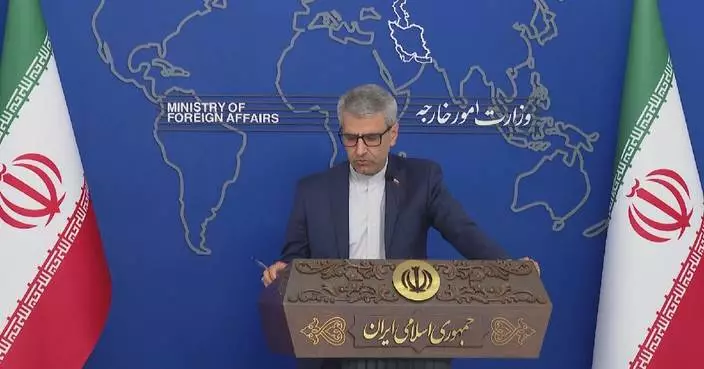BOISE, Idaho (AP) — Prosecutors and attorneys for a man charged in the killings of four University of Idaho students in 2022 argued some of the final ground rules they want for Bryan Kohberger's trial in a hearing Wednesday.
Kohberger, 30, is charged with murder in the stabbing deaths of Ethan Chapin, Xana Kernodle, Madison Mogen and Kaylee Goncalves at a rental home near campus in Moscow, Idaho.
Kohberger, then a criminal justice graduate student at Washington State University, was arrested in Pennsylvania weeks after the Nov. 13, 2022 killings. Investigators said they matched his DNA to genetic material recovered from a knife sheath found at the crime scene.
When asked to enter a plea to the charges, Kohberger stood silent, prompting the judge to enter a not guilty plea on his behalf.
Jury selection in the case is expected to begin July 30, with the trial starting Aug. 11. The trial is expected to take nearly three months to complete.
Attorneys on both sides of the case have filed hundreds of pages of legal motions, including whether Kohberger should face the death penalty if he is convicted, whether witnesses should be allowed to testify about things like “touch DNA,” and who should be allowed in the courtroom during the trial.
Defense attorney Anne Taylor told the judge that the death penalty should be taken off the table for several reasons, including her client's autism diagnosis. She also said her team is still struggling to go through massive amounts of discovery material from prosecutors.
Many of those documents have been jumbled, out of order or electronically locked, Taylor said.
She said the issues are big enough that at this point it would be unfair for Kohberger to face the death penalty. She pointed to another recent major criminal case, in which a judge took the death penalty off the table for Lori Vallow Daybell after last-minute discovery issues arose before trial.
“We continue to go through discovery as rapidly as we can, we just won't get through all of it before we go to trial,” Taylor said.
Fourth District Judge Steven Hippler told Taylor he should have heard about the issues with discovery earlier in the case, and that Vallow Daybell's case is “completely different.”
Prosecutor Ashley Jennings said the defense was provided a searchable index for all the FBI documents.
Hippler said he would rule later.
The prosecution has listed Kohberger’s family as potential witnesses. Typically, witnesses are excluded from trials until after they have testified so their testimony isn’t influenced by other evidence.
But the defense team says Kohberger’s family should be able to attend because he relies on their support and it is the humane thing to do.
The prosecution told the judge that the defense shouldn’t be able to dictate how the prosecution presents its case. She says putting the family members on the witness stand early in the trial would make the testimony out of context and out of order.
“This is like a gumbo,” Hippler replied. “You all are going to put all the pieces you need into a pot, and at the end of the day, the jury is going to decide if it’s a good soup or not.”
He said he would take the matter under advisement and issue a ruling later.
“I can only imagine that the family of Mr. Kohberger is devastated by these things. It’s nothing that they did, and their ability to be here to see the trial is important,” Hippler said.
If the jury finds Kohberger guilty, the defense team plans to submit evidence about his autism spectrum diagnosis as a “mitigating factor” for why he should not be sentenced to death.
The purpose is to show jurors that some of his behaviors are related to autism, Taylor said. For instance, Kohberger tends to be stoic and can sit very still for long periods of time, she said, and sometimes talks for longer than other people might want him to talk.
Taylor asked the judge to issue an order that says Kohberger’s autism-related characteristics can’t be used by prosecutors as “aggravating factors,” or reasons that he should get the death penalty.
The prosecution team countered that they have much better aggravating factors to present and don’t plan to reference Kohberger’s autism spectrum condition if the case reaches the penalty phase. But they also don’t want the defense to be able to chalk up any behaviors as being related to autism.
The judge said he will issue a detailed ruling later, but for now is making a general ruling that the state can’t cite autism as an aggravating factor.
The defense team says they plan to present evidence of “alternate perpetrators,” and their investigation into that is still underway.
But prosecutors want the judge to issue an order preventing defense attorneys from using a “shotgun approach” by throwing a bunch of names at the jury without offering substantiating evidence tying those people to the crime.
Defense attorney Elisa Massoth told the judge that there’s a lot of evidence to support other suspects.
“I would hope that the state, the court, can see that we are calculated and thoughtful in everything we’re doing in this case and wouldn't treat alternative perpetrators any other way,” Massoth said.
The judge says the defense team will have to make a “factual showing” that any suggested alternative perpetrators have a connection to the crime, and he doesn’t want to do that during the trial.
Hippler said he would set a separate hearing before the trial so the defense can present its evidence relating to alternative perpetrators.
Kohberger’s defense team asked the judge to prevent the state from relying on the excessive use of “emotional appeal” or gruesome photographs, and inflammatory words like “murderer,” “psychopath” and “sociopath.”
Hippler declined to issue a general order against inflammatory conduct but told both sides that he expected them to follow courtroom rules. He said he wouldn’t allow the use of the terms “psychopath,” “sociopath” or “murderer” during the evidentiary phase but left open the possibility that prosecutors could use “murderer” during closing arguments.
“Make no mistake, these murders, whoever did them, were ... horrific. And I expect that the evidence will reflect that,” Hippler said. “When it comes to cumulative evidence or some that are unnecessarily graphic, I think we will address that on a case-by-case basis.”
This story has been updated to correct the date of the killings.

FILE - Bryan Kohberger, accused of fatally stabbing four University of Idaho students, is escorted into court for a hearing in Latah County District Court, Sept. 13, 2023, in Moscow, Idaho. (AP Photo/Ted S. Warren, File)

FILE - Bryan Kohberger, accused of fatally stabbing four University of Idaho students, is escorted into court for a hearing in Latah County District Court, Sept. 13, 2023, in Moscow, Idaho. (AP Photo/Ted S. Warren, File)



